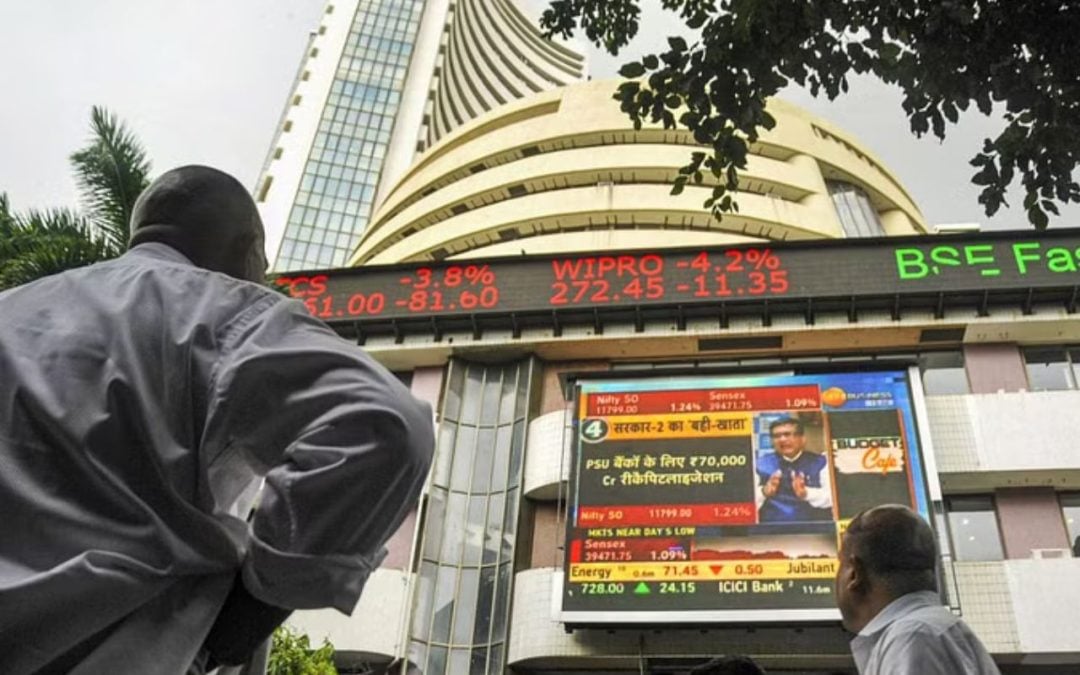Synopsis:
BSE shares dropped over 6 percent as investors reacted to SEBI’s proposed reforms in the equity derivatives market. Concerns over liquidity and volume loss weighed heavily on BSE’s outlook.
Shares of BSE Ltd fell sharply on Thursday, with the stock touching an intraday low of Rs. 2,364 compared to the previous close of Rs. 2,523. This marks a decline of 6.3 percent at the day’s low, as investors reacted to fresh regulatory developments in the derivatives segment.
BSE Ltd, with a market capitalization of Rs. 97,463 crore, opened at Rs. 2,524. The sell-off came as market participants weighed the potential impact of upcoming changes in equity derivatives trading rules, which form a significant revenue stream for the exchange.
What’s the News?
The Securities and Exchange Board of India (SEBI) is preparing reforms that could reshape the equity derivatives market. SEBI Chairman Tuhin Kanta Pandey stated that the regulator is exploring ways to extend the tenure and maturity of equity derivatives contracts to discourage excessive short-term speculation and foster long-term market stability.
The move comes at a time when derivatives volumes, particularly driven by retail investors, have surged to record highs. SEBI has already taken steps to cool speculative activity by limiting the number of contract expiries and increasing lot sizes to make trades more costly. The regulator is also working with the Ministry of Corporate Affairs and stock exchanges to establish a regulated platform for pre-IPO companies, broadening transparency and oversight in capital markets.
A key announcement on June 17th, 2025 stated that from September 1, 2025, expiry dates will be swapped between the two main exchanges. NSE will move its equity derivatives expiry to Tuesday, while BSE will shift to Thursday. For traders, NSE’s Tuesday expiry offers a longer trading window before expiry, while BSE’s revised Thursday slot could prove less favorable in terms of liquidity. Analysts expect this change could trim BSE’s trading volumes by nearly 10–15 percent during the transition.
The reforms are also a response to SEBI’s findings that 91 percent of individual traders in futures and options incurred net losses in FY25, collectively losing more than Rs. 1 lakh crore. This highlighted the risks of rampant short-term speculation, which contributes little to capital formation but significantly raises market volatility.
For BSE, the dual challenge of regulatory tightening and the expiry schedule shift created concerns among investors. The possibility of reduced liquidity, higher trading costs, and a likely increase in NSE’s market share raised doubts about BSE’s near-term earnings growth, triggering a sharp sell-off in its shares.
Alongside BSE, shares of other market-linked firms also came under pressure following SEBI’s announcement. Angel One Ltd, a leading retail brokerage and financial services player, slipped to an intraday low of 6.7 percent as regulatory changes could directly impact derivatives trading volumes and client activity.
Central Depository Services Ltd (CDSL), which plays a key role in the capital market infrastructure, also declined, hitting an intraday low of 1.7 percent. The broader sell-off reflected investor concerns over reduced market participation and trading liquidity.
Rajesh Baheti of Crosseas Capital Services, highlighted that derivatives contribute nearly 85 percent of the revenue for discount brokers and exchanges. He projected a 35 to 40 percent decline in NSE’s revenue and a sharper 50 to 60 percent drop in BSE’s topline, while full-service brokerages may face a 10 to 15 percent revenue impact.
Written By Manan Gangwar
Disclaimer

The views and investment tips expressed by investment experts/broking houses/rating agencies on tradebrains.in are their own, and not that of the website or its management. Investing in equities poses a risk of financial losses. Investors must therefore exercise due caution while investing or trading in stocks. Trade Brains Technologies Private Limited or the author are not liable for any losses caused as a result of the decision based on this article. Please consult your investment advisor before investing.





